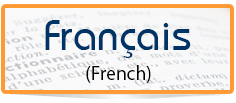
The French Past Anterior

In French, the past anterior has the same function as the past perfect. Unlike the past perfect, however, the past anterior is used only in academic, literary, and historical writing. When speaking, the anterior is usually replaced with the past infinitive, perfect participle, or pluperfect.
Conjugating the Past Anterior
Because the past anterior is reserved for academic, literary, and historical writing, you probably won’t have to conjugate it on a regular basis. However, you will need to be able to recognize the conjugations when you read them.
The past anterior is a compound conjugation. The first part consists of the passé simple (simple past) of one of the following auxiliary verbs: avoir (to have) or être (to be). The second part is the past participle of the main verb. When using être, the past participle must agree with the subject. When using avoir, the past participle may or may not have to agree with its direct object.
| Pronoun | Être + Arriver
(to arrive) |
Avoir + Finir
(to finish) |
Être + S’appeler*
(to be called) |
| J’ | fus arrivé(e) | eus fini
|
me fus appelé(e) |
| Tu | fus arrivé(e) | eus fini | te fus appelé(e) |
| Il/elle | fut arrivé(e) | eus fini | se fut appelé(e) |
| Nous | fûmes arrivé(e)s | eûmes fini | nous fûmes appelé(e)s |
| Vous | fûtes arrivé(e)(s) | eûmes fini | vous fûtes appelé(e)(s) |
| Ils/elles | fûtes arrivé(e)(s) | eûmes fini | se furent appelé(e)s |
* S’appeler is a pronominal, or reflexive, verb. It requires a reflexive pronoun in the past anterior.

